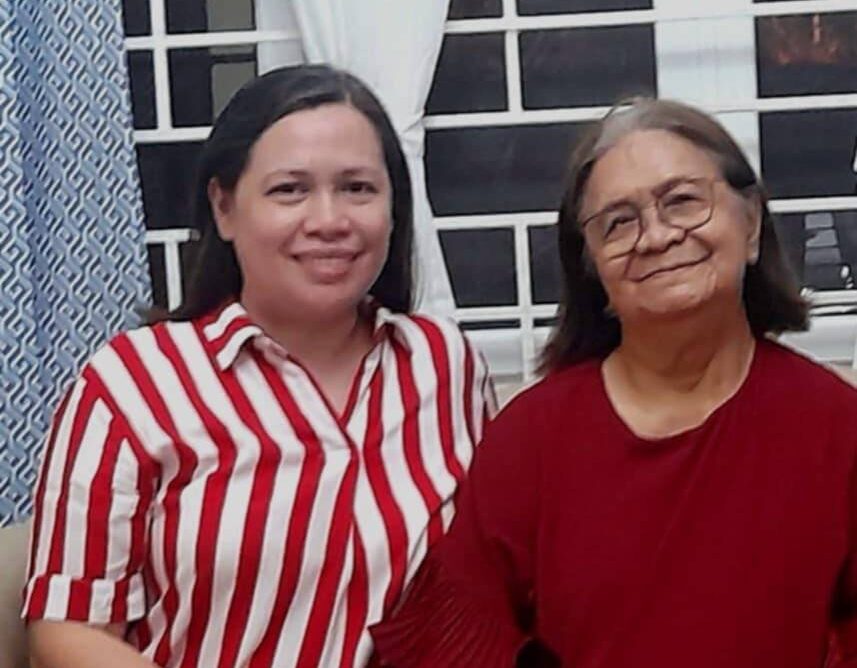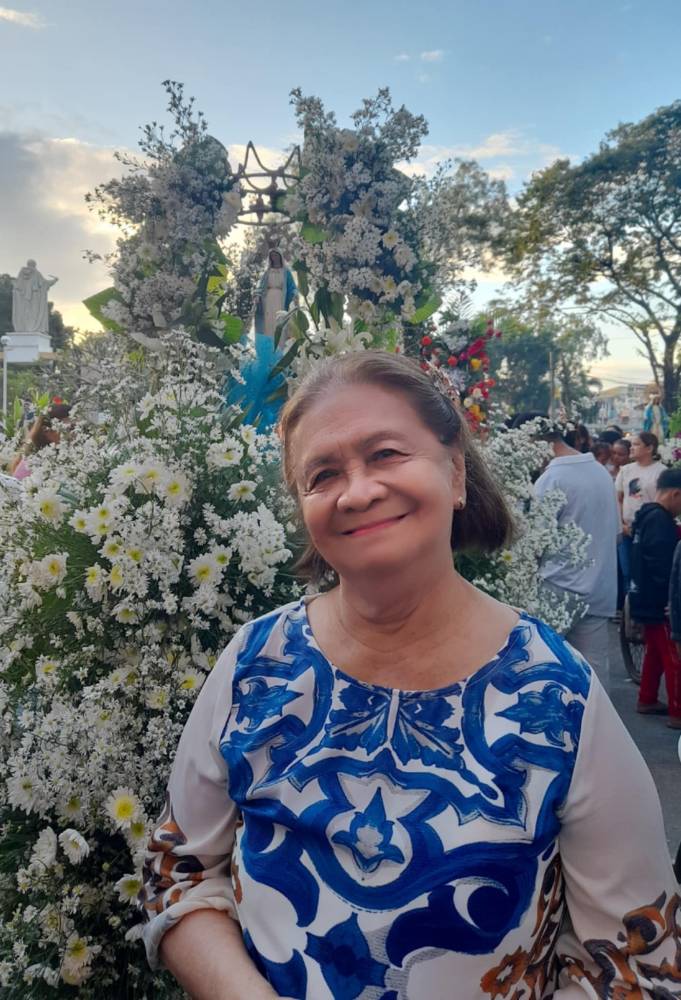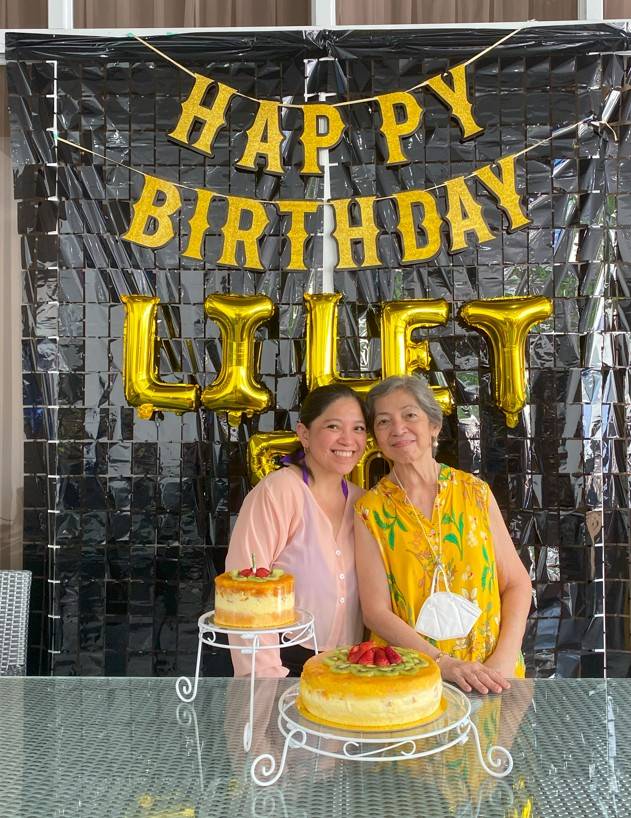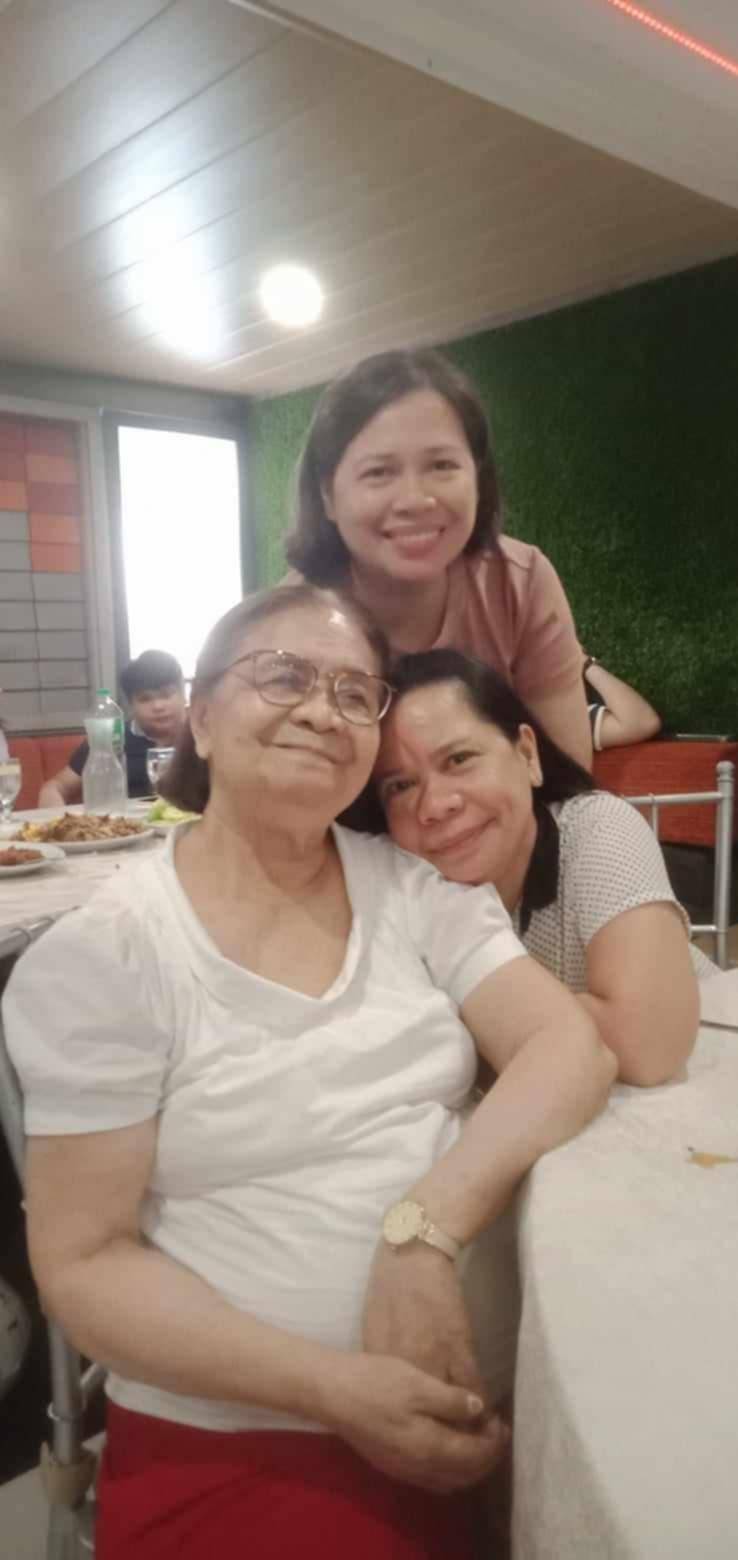Heartfelt sacrifice: The unmarried daughter’s caregiving role

In many households with one or both elderly parents, the task of giving primary care usually falls on the unmarried family member, especially the daughter. This arrangement is not just a coincidence, but is something deeply inherent in Filipino culture, says Gail R. Galang, Ph.D, RPsy.
“Filipino tradition emphasizes respect and care for elders,” says Galang, program chair of Miriam College’s Department of Psychology, who also chairs the Family Studies department and functions as associate director of the Center for Peace Education.
“When unmarried daughters care for their aging parents, they affirm to themselves that they are living a purposeful life,” she tells Lifestyle in an email interview, adding that gender roles also play a significant part. “In Filipino families, women are historically seen as care providers. For example, daughters extend a hand in helping her mother cook a favorite family recipe.”
She points out, though, that “more men are stepping up into caregiving roles,” such as a son considering working from home on some days so that he can participate in taking care of elderly parents. Then there are the extended family members who live in the same house or nearby, pitching in to give assistance.

Still, she notes, “It is not uncommon for unmarried daughters to be the one available to provide care, especially if their siblings are preoccupied with their own family obligations… Economic factors also come into play. The unmarried daughter may have more flexibility in her schedule than a married sibling who is trying to juggle career and childcare.
“However, it is also important to note that the financial landscape is changing. Many unmarried daughters are not balancing their careers with caring for their elderly parents.”
As for the psychological effects that this setup may bring, Galang says the unmarried daughter, in taking the role of primary caregiver, can develop feelings of stress, anxiety, and burnout. Sometimes, she observes, the tasks that elderly parents pass on to the children are so complicated that it feels overwhelming.
Loss of freedom
“It may also result in a loss of personal freedom and opportunities for socialization,” she adds. An unmarried daughter, for instance, may believe that because of the obligated care for her parents, she is unable to pursue her own dreams.

Meanwhile, the psychologist says, “Other family members might experience a range of emotions, from support and appreciation to resentment or guilt, depending on their involvement and perceptions of fairness in caregiving responsibilities.”
Being the primary caregiver of her widowed mother was not something imposed on her due to being single, says Ma. Luisa G. Serafica, a lawyer and cafe co-owner in her middle years. “It just happened because we live in the same house. I just accept it. And I think, it is innate in us Filipinos to take care of our elderly parents.”
She has no problem assuming the role, adds the eighth in a brood of nine. “Not everyone is given the opportunity to take care of their elderly parents because of career and family life. It is also my way of giving back for the years she sacrificed raising us.”
Serafica’s mother, Pastora, 87, was diagnosed with glaucoma in 2022. The condition thus affected her mobility, but she can still see and read in a very limited capacity. Apart from that, she’s generally healthy, though she has to take medications to prevent having diabetes, hypertension, and other diseases.
“Mommy is not really difficult to care of,” Serafica tells us via email. “She seldom gets sick. She watches what she eats. She can still manage herself. She only asks for assistance if she needs it. It also helps that we have two trusted helpers who are her company and administer her eye drops when I am out of the house for work. Some of my siblings live near us. So if ever we needed help, I could always call on them.”

Sensitive
Mother and daughter live in the Seraficas’ ancestral home in Mangaldan town, Pangasinan, where other family members also reside. Their typical day includes watching together the elder’s favorite family game show and evening newscast. Before going to bed, Serafica prepares her mother’s glass of milk and administers eye drops to her lone parent.
“As most elderly parents, Mommy can get very sensitive,” Serafica says. “She has her moods. You just have to be understanding. Because of her glaucoma, I now sleep in her room. Most nights I am deprived of quality sleep. I am a light sleeper and I easily wake up when my mom wakes up to answer the call of nature. Sometimes, it’s hard to go back to sleep.”
But those difficulties are nothing compared to the happiness she derives from caring for her mother: “Just seeing my mom not getting sick is a joy in itself, as well as seeing her laugh at my jokes… Together, it has been our running joke that she can see clearly when it comes to money, and she would laugh.” She adds that they now have a closer relationship, with her mom becoming more appreciative.
“I am not an expressive person,” Serafica admits. “Through acts of service, I am able to show my love for my mom. The arrangement also saves our family from squabbles on who is going to take care of her.”
Her advice to fellow primary caregivers of elderly parents: “Taking care of an elderly parent takes a lot of patience and understanding. Be gentle with your words. Add some humor when taking care of parents. Laughter is the best medicine. Take this also as an opportunity to show that you care and love them.”
Dementia
When Lyra Marie Villaraza, 52, lost her father in 2013, she took it upon herself to take care of her widowed mother, who, she knew, would surely miss their dear departed. So she decided to come home from Singapore for good the following year to join her mother Lourdes and a niece in their house in Cubao, Quezon City.
Villaraza tells us that her four siblings, who are all male and residents of Marikina City with their respective families, have long asked their mother to move to any of their houses. “I guess elderly people would rather stay in a place they’re used to living in,” she says, adding that her brothers regularly visit them at home, or one of them would fetch their mother to stay with them for a few days.
Their mother then got so big that her knee suffered to the point of needing a surgery, but she didn’t want to be operated on. Her children then provided a wheelchair that she could use whenever she had difficulty walking. Around that time, Villaraza noticed a change in their mother’s behavior and attitude, which eventually turned out to be symptoms of dementia.
“Now, she has severe dementia,” Villaraza says of her mother, who’s turning 75 next month. “All the more she needs somebody to look after her 24/7. It’s not just the usual care for the elderly. She needs help with things like eating, taking a bath.”
Villaraza provides that assistance with their full-time house help, who will soon leave with her niece, now a mom to a baby daughter and awaiting a posting abroad.
“That stresses me out now,” she confesses, as caring for her mom is too much for just one person, considering that she has to work, too. As a freelance preschool and special education teacher, she creates small groups of three to six children and conducts a preschool class in her pupils’ home. She also runs a small business selling coffee beans and coffee drip online.
One of the biggest challenges she faces is her mother’s inability to fall sleep or stay asleep at night, as they stay in one room and in one bed if the house help is not around. She can’t get enough sleep for fear that her mother will suddenly get up. That has happened a few times, and the older woman ended up slipping off the bed and hurting her head. This was eventually prevented when a bed rail was installed, but the daughter’s sleepless nights go on.
“Because I love her so much, because I learned how to love too much from her also, all these things become easy to do,” Villaraza says. “We do this not because we are obliged. More than anything, we do this out of love and to show our gratitude. There’s always joy in taking care and loving somebody. By nature, we don’t only receive but also give love.”
Caring for the elderly
Providing psychological support to the elderly involves active listening, validating their feelings, and encouraging open communication, says Galang. She recommends engaging the elders in meaningful conversations, reminiscing about their positive memories, and involving them in family activities to help maintain their sense of purpose and connection. She points out, too, that quality time should be carved in the schedules of all family members, keeping conversations positive, light, and encouraging for both elderly parents and most especially for the designated primary caregiver—in many cases, the unmarried daughter.
As to how the primary caregiver can look after her own mental health, Galang suggests for the daughter and her siblings to prioritize self-care by setting boundaries, seeking support from friends or support groups, and taking time for themselves. They can also regularly engage in activities they enjoy, practicing stress-relief techniques such as mindfulness or exercise, and communicating openly about their feelings and challenges to help maintain their mental health.
Here are Galang’s additional tips in caring for the elderly: “Open communication is key; family members should discuss expectations, responsibilities, and feelings regularly. Establishing a caregiving schedule can help distribute tasks fairly. Encouraging involvement from all family members, including siblings, can foster a sense of teamwork. It’s also important to recognize and appreciate each other’s efforts and to seek external help when needed, whether through professional caregivers or community resources.
“Prioritizing the well-being of both the elderly parents and the caregivers is essential for a balanced and healthy family dynamic. Financial planning is also essential, ensuring everyone is on the same page about cost and resources. Keeping conversations light and mindful ensures all family members, especially the unmarried daughters, are well-supported and cared for as well.”





















